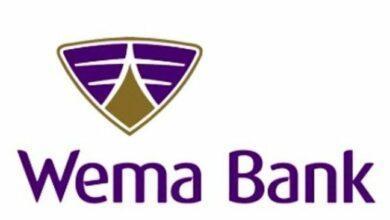
Borrowing Against Your Assets: How Collateral Loans Work
At one point in time or another, businesses and personal finances usually become limited, and liquidity issues arise. Payday loans and maxing out credit cards are usually the fastest way to solve liquidity issues, but they come with hefty interest rates and stringent terms and conditions.
Additionally, these options generally require you to have a great credit score to qualify. A collateral loan is one option that allows you to keep your credit score as is, and when managed properly, won’t put you in a cycle of debt.
👉 Relocate to Canada Today!
Live, Study and Work in Canada. No Payment is Required! Hurry Now click here to Apply >> Immigrate to CanadaWhat Are Collateral Loans?
Taking out a loan from a bank or a financial institution gives you two basic options: secured and unsecured loans. A secured loan means that you give the bank some form of collateral for the loan, a security measure that reduces the institution’s risk. An unsecured loan, however, requires no collateral in exchange for the loan.
When you take out a collateral loan, you give the lender the right to take your property if you fail to pay back the money within the agreed period of time. Collateral loans have a few pros and cons, and it is up to you to decide if you are willing to accept them or not.
Pros of Collateral Loans
- Collateral loans have a lower interest rate compared to unsecured loans. This is the greatest benefit of collateral loans, as they are considered low-risk by financial institutions. By attaching an asset to the loan, banks and financial institutions are guaranteed that they will recover the money lent out by selling the asset if you fail to pay off the loan.
- You are qualified for a higher amount of money if you take out a collateral loan. Depending on the asset you have attached to your loan, you can qualify to up to 80% of the value of the asset. Unsecured loans are considered highly risky since the financial institutions have no chance of recovering the amount lent out. That is why lender limits the amount mostly up to dollar 500 to play on safer side. Secured loans ensure that there is a way to recover even a partial amount of the borrowed money, and financial institutions become more willing to approve a higher loan value.
- You do not need a perfect credit score to secure a collateral loan. Unlike unsecured loans, collateral loans do not require a perfect credit score, since your asset will be the qualification you need to assure the financial institutions that their risk is substantially lowered. If you have a limited credit history, collateral loans give you access to a number of borrowing options.
- Collateral loans could help you build credit. Collateral loans give you a chance to improve your credit score, especially if you have a limited credit score, or if you have a bad score. Ensure that you pay the minimum monthly payments on time, and ask the financial institution to report your payments to the main consumer credit bureaus.
Cons of Collateral Loans
- The process of securing a collateral loan is more intensive and complex. Depending on the financial institution, the details required before securing a collateral loan varies. The asset has to be valued, and this requires you to provide in-depth details about the property, including purchase receipts and proof of ownership. The paperwork is also a bit more complex, and depending on the financial institution, may take a lengthy period of time to complete, even after the necessary details are provided.
- You could lose your property if you fail to pay off the loan on time. While collateral loans pose a minimum risk to the financial institutions, this is not true for the borrower. Once you use your valuable assets to secure the loan, the consequences of defaulting on the payments become dire. The higher the value of the asset secured, the greater the potential loss.
👉 Relocate to Canada Today!
Live, Study and Work in Canada. No Payment is Required! Hurry Now click here to Apply >> Immigrate to Canada- You need to have a valuable asset to qualify for a loan. Unsecured loans are great because they do not require any property in return but do require that you have a great credit score. Collateral loans are only available to those who have assets that financial institutions also consider valuable, like cars, homes, land, or the business itself.
What Qualifies as Collateral?
Financial institutions do not classify every asset in the same category. They prefer items that are easy to value and convert into cash. A house, for example, makes great collateral, since valuation follows pretty much the same process, no matter where it may be. Selling a house may be a challenge, but financial institutions usually sell them at a price much lower than the market value. Some items that make great collateral include:
- Cash accounts
- Vehicles
- Equipment and machinery
- Valuable and collectibles
- Insurance policies
- Investments
- Receivables
- Real estate
It is worth noting, however, that not all cash accounts qualify as collateral. Retirement accounts such as your 401(k) and IRA accounts are generally not accepted.
Asset Value
The standard practice is that financial institutions offer less than the market value of your asset. Depending on the particular asset you are offering, the loan to value ratio (LTV) varies widely. The institution may also heavily discount the value of the asset, for example, they may choose to recognize only 50% of the value. If your car is worth $3,000, the institution may choose to offer you the loan based on a $1,500 valuation. The institution uses this approach as a way to reduce their risk even further.
If the value of the asset depreciates for whatever reason, you may be required to pledge more assets to keep the collateral loan in place. If you fail to make the payments, the institution has the authority to sell your assets at whatever value they see fit, even if it is lower than the loan value. This does not mean that you are out of the woods yet. Since you are supposed to pay the full loan amount, the deficit that remains after the bank sells the asset is still your responsibility, and the institution may take legal action against you to compel you to make the payment.
Bottom Line
Whether you are looking for a business or a personal loan, choosing a collateral loan is up to you. However, always ensure that you understand the terms and conditions provided by the institution you choose. If you are looking for a business collateral loan, keep in mind that your personal assets may also be used as collateral, which increases your risk.
Always ensure that you compare the rates of various institutions so that you can make the right decision. Make a payment plan in advance to avoid losing your valuable assets.








